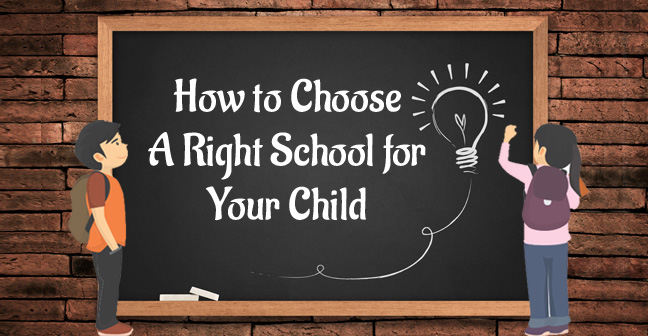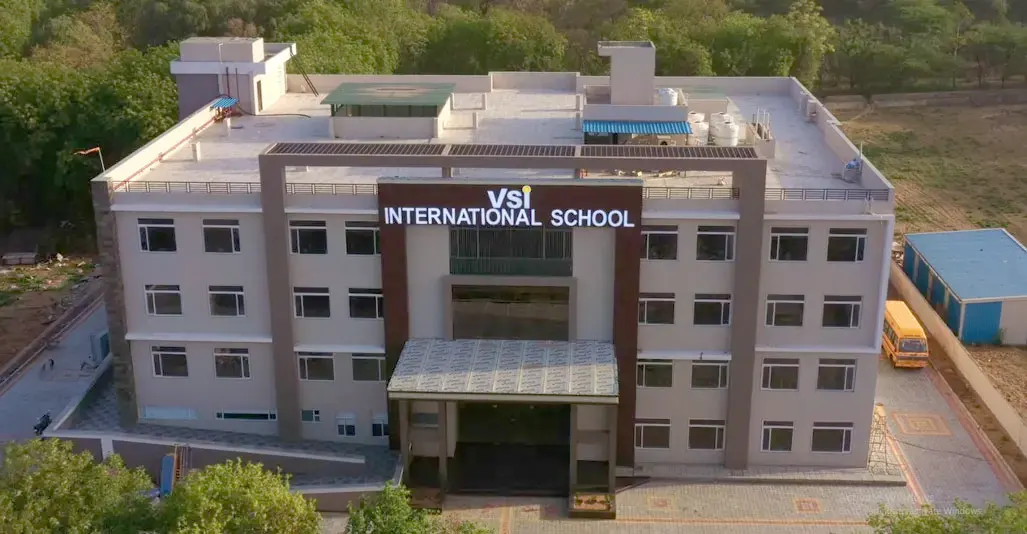
How to Choose a School for Your Child in India?
Choosing the right school for your child in India is a crucial decision that can significantly impact their academic and personal development. With various options available, such as public schools, private schools, international schools, and schools following different educational boards (CBSE, ICSE, IB, etc.), it’s essential to make an informed decision.
This guide will help you navigate through the key factors that should influence your choice, ensuring your child gets the best education.
1. Identify Your Priorities
Before diving into the options, it’s essential to clarify your priorities. Parents should consider:
- The type of education they want for their child (traditional vs. modern approaches).
- The long-term academic goals (national vs. international curriculum).
- The importance of extra-curricular activities alongside academics.
- The distance from home to the school (affecting daily commute and routine).
- Budget and affordability, including hidden costs like uniforms, books, etc.
2. Curriculum and Board of Education
The educational board plays a vital role in determining the teaching style and exam structure. In India, some popular boards include:
- CBSE (Central Board of Secondary Education): Known for its structured curriculum and national recognition, CBSE is a good fit if you foresee transfers within India.
- ICSE (Indian Certificate of Secondary Education): A more detailed curriculum focusing on a well-rounded education that balances academics with creative pursuits.
- IB (International Baccalaureate) and IGCSE (Cambridge): These boards are ideal for parents looking for an international standard of education, especially if you plan to move abroad or want a more holistic, research-based approach.
- State Boards: Every state has its board with regional content. It is ideal for families looking for affordable education with state-level relevance.
3. Quality of Teachers and Teaching Methodology
- Teacher qualification and experience are essential for a child’s growth. Ensure the school’s teachers are well-qualified and undergo continuous professional development.
- Check the teacher-student ratio. A smaller ratio often means more individual attention, helping students who may need extra support or guidance.
- Investigate the school’s teaching approach. Is it traditional, focusing purely on academics, or does it incorporate interactive learning methods, including project-based learning, experiential education, and more modern techniques?
4. Academic Performance and Results
The school’s academic results give a clear picture of its quality. Schools with high passing rates and top-ranking students often ensure rigorous academic training. Some key points include:
- How well students perform in board exams (CBSE, ICSE, or any other board).
- How many students secure admissions to reputed colleges or international institutions.
- Schools that offer coaching for competitive exams such as JEE, NEET, or CLAT often have a structured academic focus.
5. Infrastructure and Facilities
A well-equipped school provides an environment conducive to learning. When evaluating schools, visit the campus and assess the facilities:
- Classroom size and whether they’re equipped with modern technology (smartboards, audio-visual aids, etc.).
- Sports facilities, such as playgrounds, swimming pools, and courts, to promote physical health.
- Well-maintained libraries, science labs, and computer labs that foster research and curiosity.
- Safety and security measures, including CCTVs, fire safety protocols, and medical facilities.
6. Extracurricular Activities and Skill Development
In addition to academics, a good school will focus on all-round development through extracurricular activities. This helps build confidence, leadership, and teamwork skills in children:
- Sports: Does the school have the necessary infrastructure and coaching for popular sports like cricket, football, tennis, and athletics?
- Creative Arts: Does the school offer opportunities in music, dance, theater, and fine arts?
- Clubs and Societies: These give children a chance to explore their interests, such as debate clubs, science clubs, or language clubs.
7. School Location and Commute
The location of the school significantly affects your child’s daily routine. Look for a school that:
- Is either close to home or offers reliable and safe transport services.
- Does not require a long, stressful commute that could impact the child’s energy levels and study time.
- Has an accessible and secure environment, considering the child’s safety during travel.
Read More ICSE vs IGCSE
8. Fee Structure and Budget
Parents need to consider the school’s fee structure:
- Ask for a transparent fee structure including all components like tuition fees, transportation, uniforms, and any additional charges for extracurricular activities.
- Ensure the school fits within your long-term financial capacity without compromising on quality education.
- Some reputed schools offer scholarships or financial aid programs, which can be a helpful option for deserving students.
9. School Philosophy and Values
Every school operates on certain values, and it’s important to find one that aligns with your own beliefs. Some schools focus on academic excellence, while others may emphasize moral and social development:
- Visit the school and engage with teachers or administrative staff to understand their educational philosophy.
- Evaluate whether the school encourages a supportive, inclusive, and diverse environment where your child can flourish emotionally and socially.
Read More How to Become a CA After 10th
10. Parental Involvement and Communication
An effective communication channel between parents and the school is crucial:
- Look for schools that hold regular parent-teacher meetings to discuss progress and concerns.
- The school should provide timely updates on your child’s performance and extracurricular participation.
- Parents should have the opportunity to engage with the school on decisions affecting their child’s education and well-being.
11. Success of Alumni
A strong alumni network is often indicative of a school’s ability to produce successful individuals:
- Investigate where former students are now, especially in terms of higher education and career achievements.
- A good school will have a career counseling team to help students choose and prepare for their future academic and professional paths.
Conclusion:
Choosing a school for your child in India requires careful consideration of both academic and non-academic factors. By assessing the curriculum, teacher quality, infrastructure, extracurricular offerings, and alignment with your family values, you can make an informed decision.
If you’re looking for a balance of academic excellence and holistic development, VSI International School in Jaipur offers a nurturing environment with a focus on the CBSE curriculum, top-notch facilities, and personalized attention to every student. Visit us today to learn more about how we can help your child thrive!
FAQs
Q1. Why choose the right school for your child?
Ans. Schools are considered as the 2nd home for the kids. Also, it is a place where your child will be developing academically, physically, mentally and emotionally. Therefore, it is crucial to choose the right school. And that’s why we have created this article on how to choose the right school.
Q2. What are the tips to choose the right primary school?
Ans. To choose the right primary school, you should mainly focus on the location and teacher-to-student ratio. This is because small kids require more attention.
Q3. How to identify if a particular school is right for my kid?
Ans. You can ask yourself questions about the school’s study, infrastructure, co-curricular activities, your child’s requirements, etc. It will assist you in choosing the right school.
Hope you like this article on how to choose the right school. And if yes, share it with everyone who is looking for the best school for their child in India. Stay with us for more such articles, and if you are curious to know much more things, please let us know your thoughts in the comment section.




